Recommended Topics for you
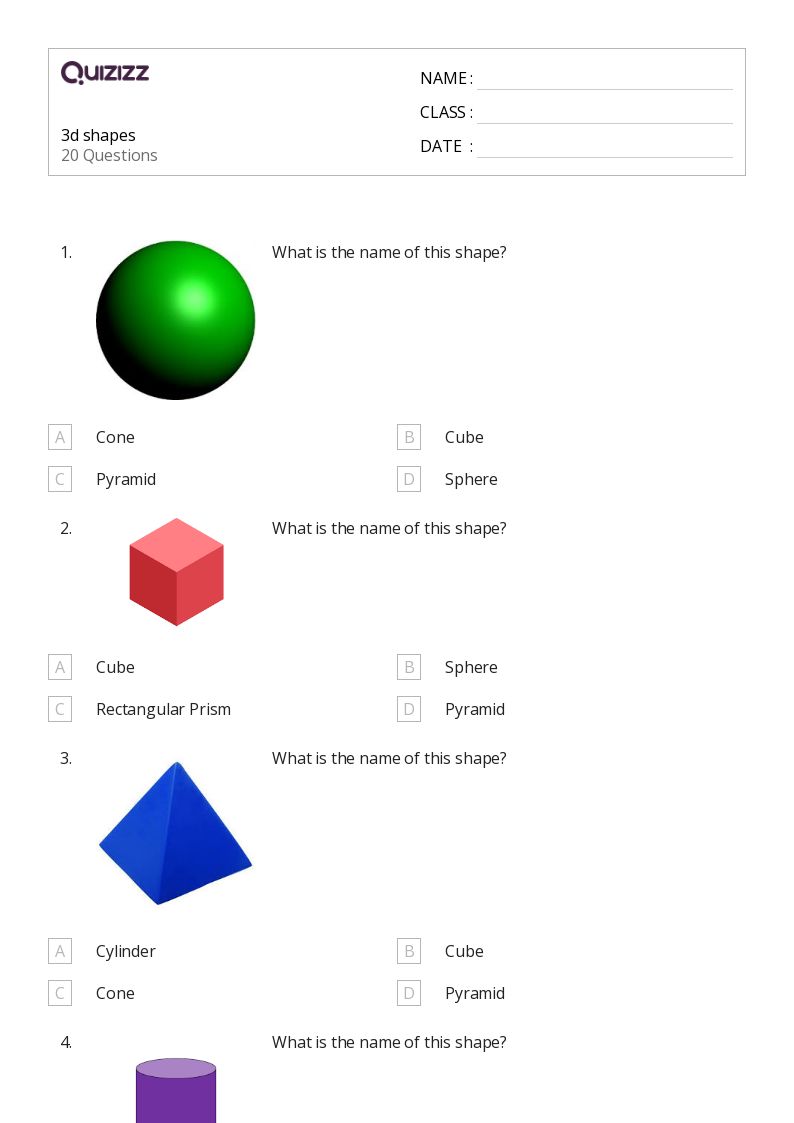
20 Q
2nd - 3rd
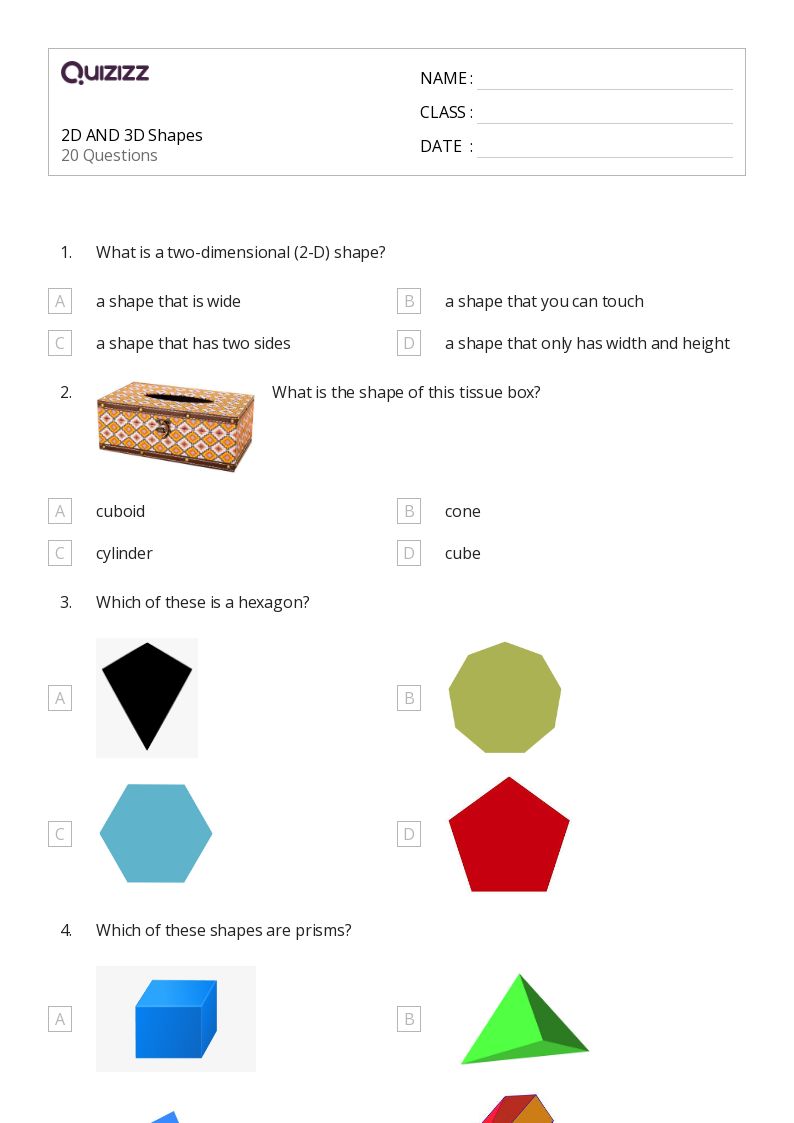
20 Q
2nd

10 Q
2nd - 5th
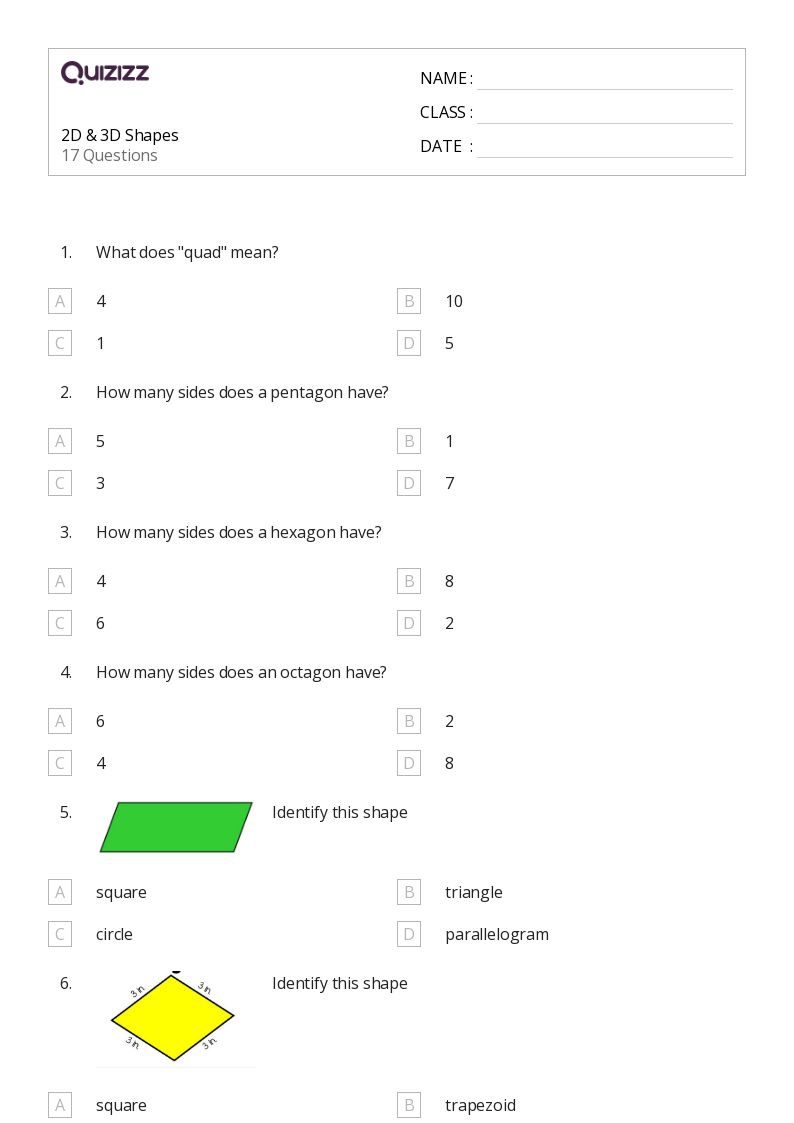
17 Q
1st - 2nd
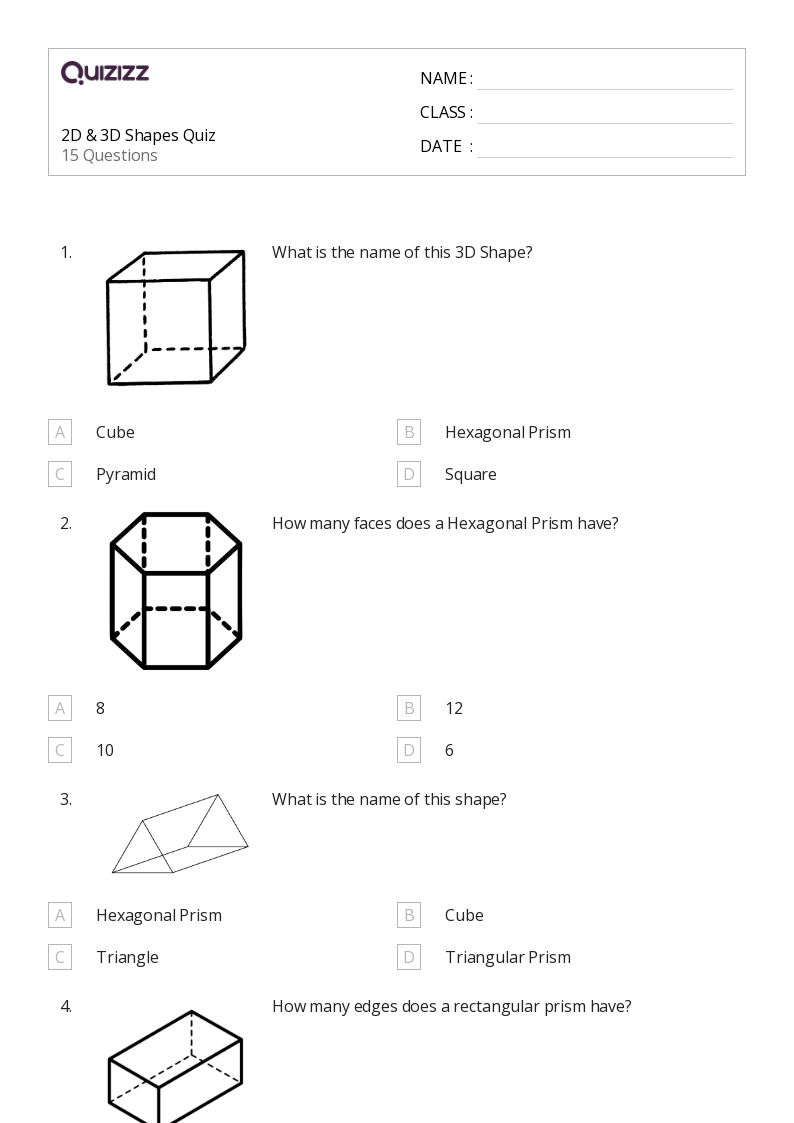
15 Q
2nd

15 Q
1st - 2nd

14 Q
2nd

11 Q
2nd - 3rd

21 Q
2nd
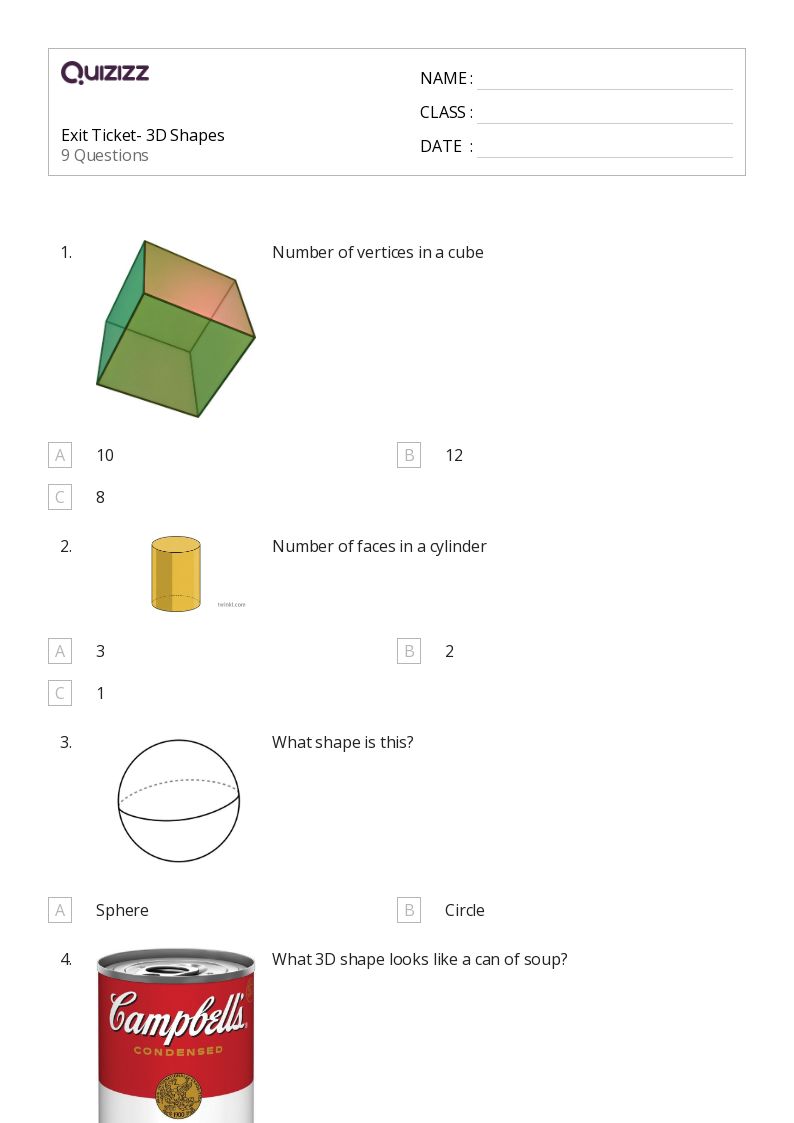
9 Q
2nd

15 Q
1st - 2nd

10 Q
2nd
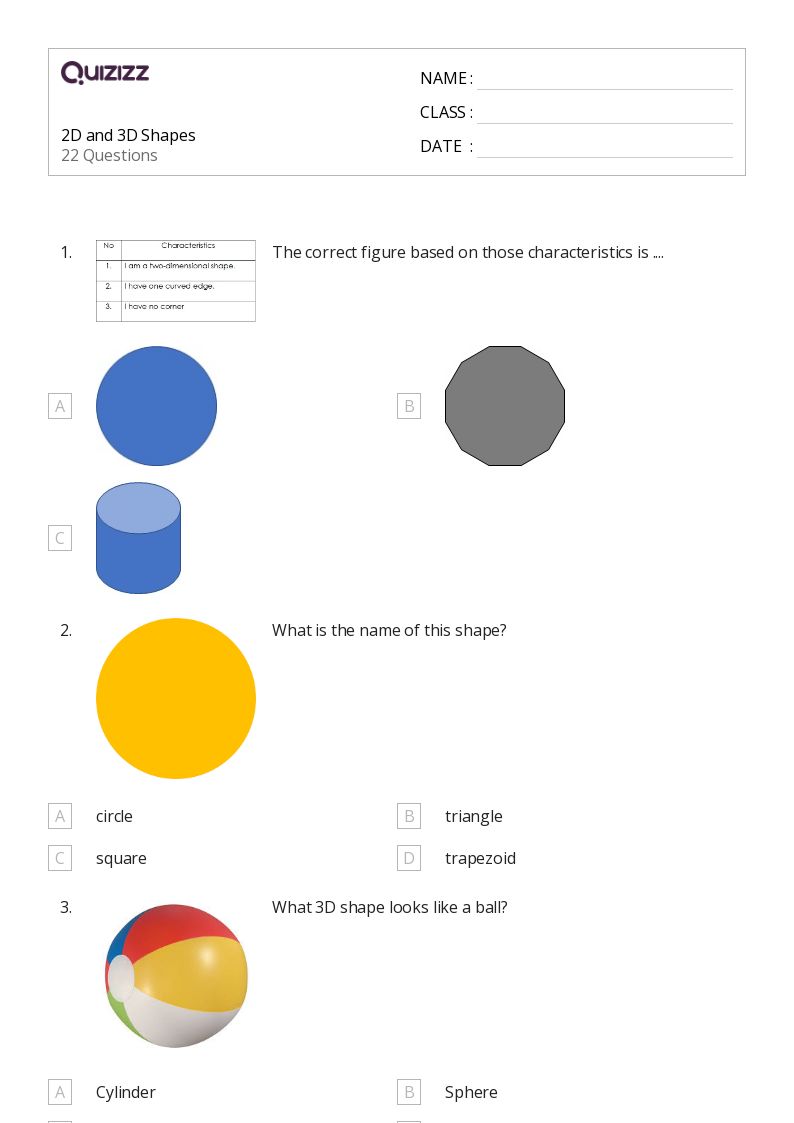
22 Q
2nd
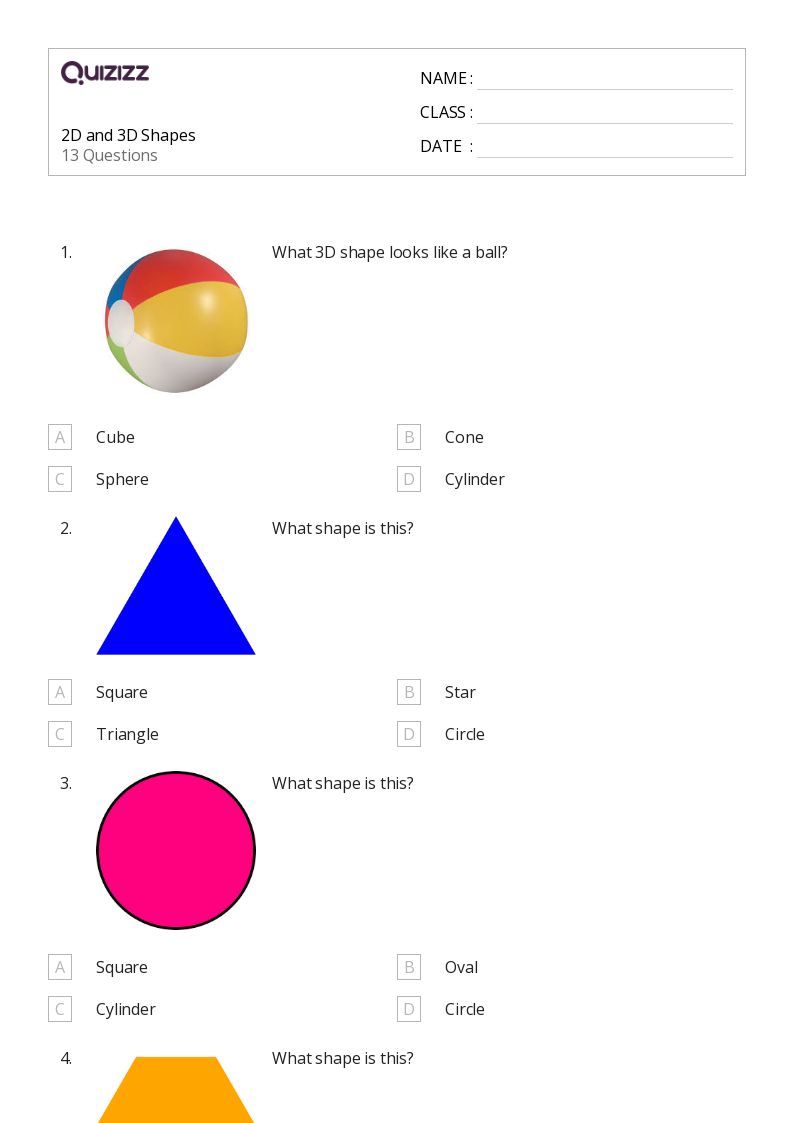
13 Q
KG - 2nd

21 Q
1st - 2nd

10 Q
2nd

20 Q
2nd
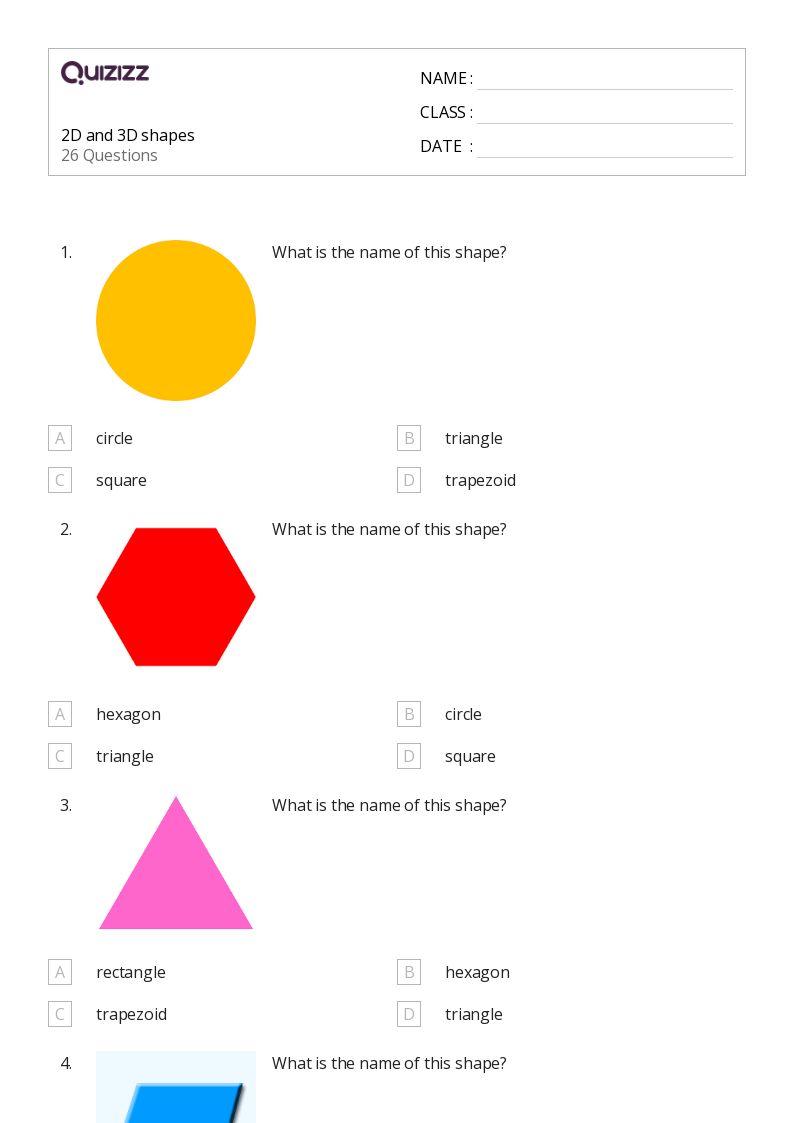
26 Q
2nd

13 Q
KG - 2nd

20 Q
2nd
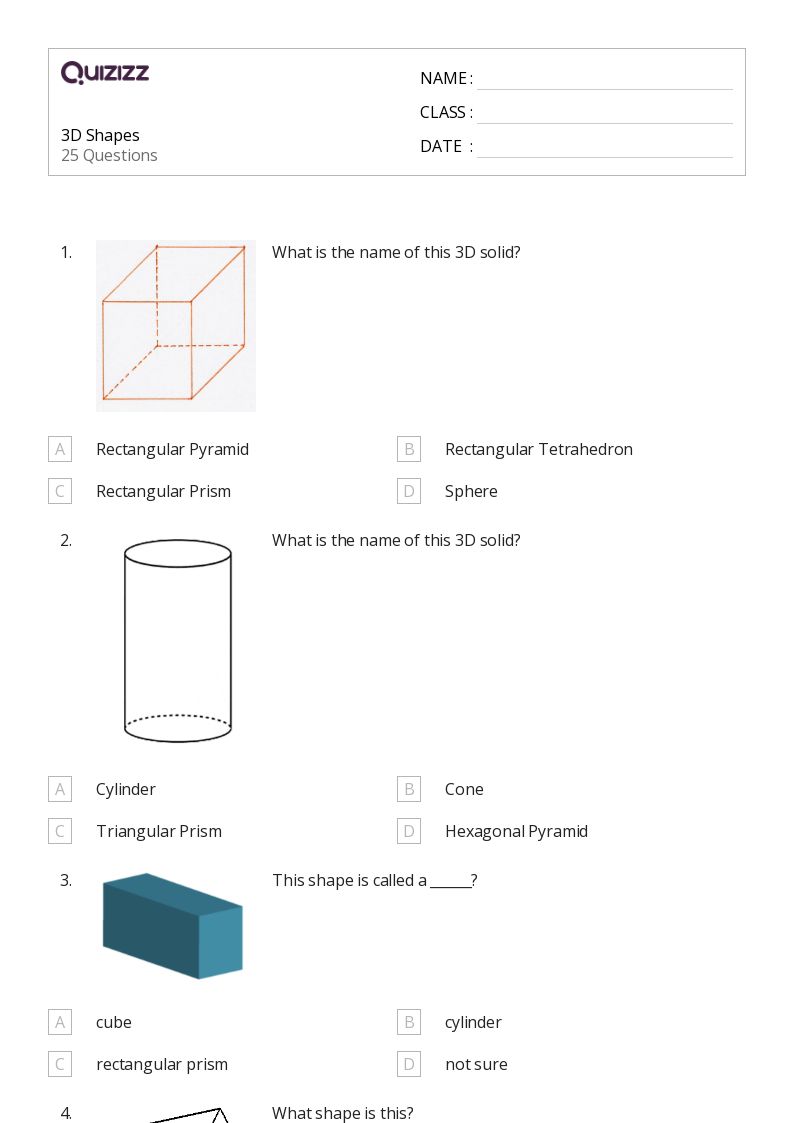
25 Q
2nd

10 Q
2nd

10 Q
2nd - 4th
Explore 3D Shapes Worksheets by Grades
Explore 3D Shapes Worksheets for grade 2 by Topic
Explore Other Subject Worksheets for grade 2
Explore printable 3D Shapes worksheets for 2nd Grade
3D Shapes worksheets for Grade 2 are an excellent resource for teachers who want to help their students develop a strong foundation in math and geometry. These worksheets provide a variety of engaging activities that focus on identifying and understanding three-dimensional shapes such as cubes, spheres, cylinders, and cones. With colorful illustrations and clear instructions, these worksheets are designed to make learning fun and accessible for young learners. Teachers can use these worksheets to supplement their existing curriculum or as a standalone resource for reinforcing important concepts in geometry. By incorporating 3D Shapes worksheets for Grade 2 into their lesson plans, teachers can ensure that their students are well-prepared for more advanced math topics in the future.
Quizizz is an innovative platform that offers a wide range of educational resources, including 3D Shapes worksheets for Grade 2, to help teachers create engaging and interactive learning experiences for their students. This platform allows teachers to easily create quizzes, polls, and other interactive activities that can be used in conjunction with worksheets to reinforce key concepts and assess student understanding. With Quizizz, teachers can also access a vast library of pre-made quizzes and activities that cover a wide range of topics, including math, geometry, and more. This makes it easy for teachers to find the perfect resources to support their lesson plans and engage their students in meaningful learning experiences. By incorporating Quizizz into their teaching strategies, educators can ensure that their students are not only mastering important concepts but also developing essential problem-solving and critical thinking skills.
